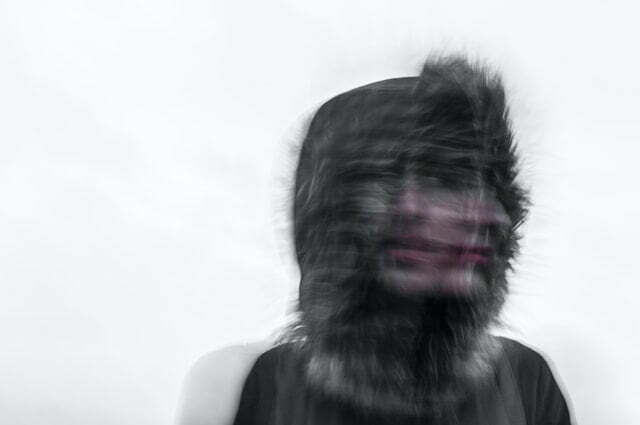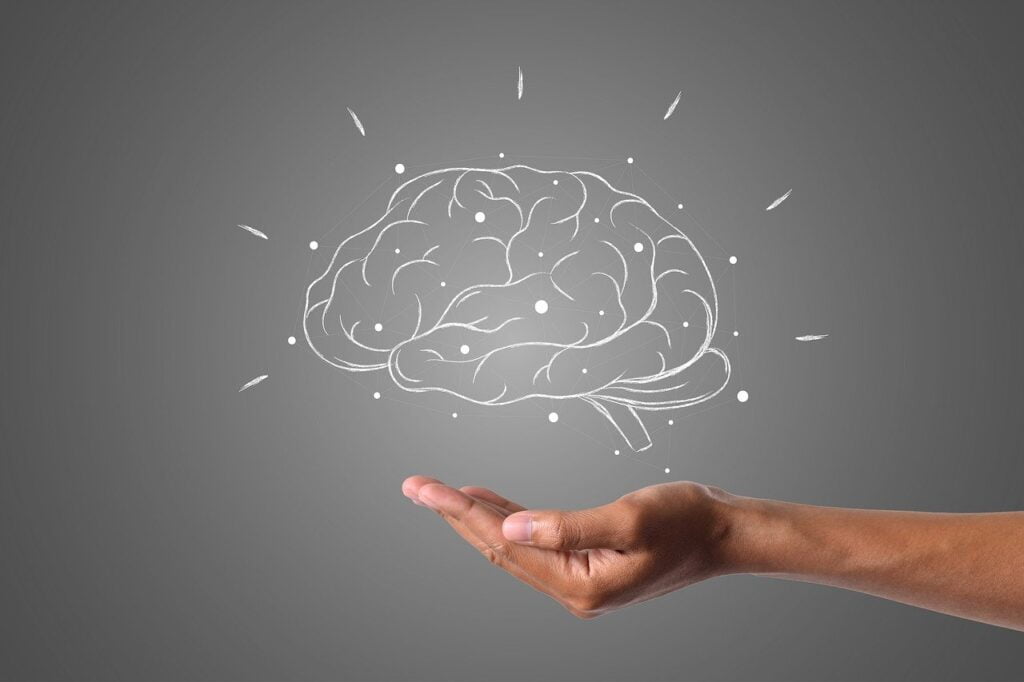- Home
- Addiction Treatment
- Dual Diagnosis
- Dual Diagnosis: Schizophrenia
Dual Diagnosis: Schizophrenia
The co-existence of a substance use disorder (SUD) and schizophrenia is commonly called a dual diagnosis, as patients will poor mental health are more likely to develop an addiction to substances.
SUD occurs in over 47% of patients that are diagnosed with schizophrenia, whilst 60% of psychotic patients suffer from addiction.
There are multiple hypotheses to explain the comorbidity between SUDs and schizophrenia, including drug induction, biological vulnerability and self-medication.
Dual Schizophrenia Diagnosis

Most dual schizophrenic patients are young males, hospitalised at an early age with:
- Increased risk of suicide
- Higher rates of violent behaviour
- More susceptible to crime
- Lower therapeutic compliance
- Impulsive behaviour
- Antisocial behaviour
- Poly-drug use
The age of psychotic onset is lower in addicts with schizophrenia who use substances that are not physically addictive, such as cannabis.
Psychotic symptoms often occur after around 2 years of addiction.
Generally speaking, those suffering from a schizophrenic dual diagnosis are at greater risk of:
- Regular rehospitalisation
- Suicide
- Aggressive behaviours
- HIV or Hep C infections
Comorbid substance disorders are associated with negative outcomes, mostly including psychotic episodes, homelessness and medical issues.

Drugs are said to not directly cause schizophrenia, but the misuse of drugs can increase your risk of developing a mental illness.
Certain drugs -such as cocaine,cannabis or LSD– are said to be the most triggering causes of schizophrenia in those that are susceptible to bad mental health.
Drug use or SUDs make schizophrenia worse. This can be associated with genetic determinants, specifically those that are vulnerable to addiction.
This vulnerability can come from prior psychotic symptoms.
Schizophrenia patients become more vulnerable to SUDs and have a 47% higher risk of developing drug or alcohol problems than the rest of the population.
Biological Models Of Schizophrenia

In 2007, Green et al aimed to explain the nexus between substance use disorder and schizophrenia.
The diathesis-stress model, also called the ‘two hit’ model, states that neuro-vulnerability, in addition to the stresses of the environment, can lead to schizophrenia.
This was backed by the ‘cumulative risk factor hypothesis’, suggesting that those with schizophrenia are vulnerable to SUDs due to reduced levels of:
- Cognitive functioning
- Social and education functioning, with increased risks of poverty
There is one model -called the ‘self-medication hypothesis’- that states schizophrenia patients that use drugs aim to reduce their symptoms and the side effects of antipsychotic treatments.
However, whilst this is plausible, there has been little evidence to proves the use of substances effectively reduces these symptoms.

The most common biological theory is coined the ‘primary addiction’ hypothesis.
This reward deficiency syndrome affirms that there is a shared pathophysiology between schizophrenia and substance abuse.
They both have overlapped circuits in the brain, possibly relation to a particular neuro-dysfunction.
This theory also suggests that patients may self-medicate through their use of substances, which can cause abnormalities in the reward circuit.
What Comes First, Schizophrenia Or Substance Abuse?

Professionals suggest that the use of substances comes before kinds of psychosis.
Many patients that show signs of psychosis are also long-term cannabis users, most of them using it for over 5 years.
These patients are also more likely to smoke.
Patients that use cannabis regularly have a risk of schizophrenia that is 4 times more likely than moderate users, which stand at 2 times more likely than those that do not use it at all.
This may not be a direct cause, but is certainly linked with early-onset and worsening of mental health.
The relationship between the use of cannabis and the onset of schizophrenia is clear: there is a 7- or 8-year age gap between first using cannabis and psychotic symptoms.
It is also evident that men show earlier signs of psychosis than women, but when they use cannabis, this age gap appears smaller.
What else contributes to psychosis other than cannabis use?
- Biology
- Environment
- Trauma
- Poly-drug use
Genetic Causes Of Dual Diagnosis

Genetic factors seem to play a massive role in a patient’s susceptibility to schizophrenia and substance use disorder.
This is then made worse by the use of cocaine, nicotine, alcohol and cannabis.
Three genes have gained dramatic attention with their relationship between drugs and schizophrenia:
- Encoding brain-derived neurotrophic factor (BDNF): Involved in dopamine activity.
- Catechol-O-methyltransferase (COMT): Associated with reduced dopamine levels and increasing the risk of addiction.
- Protein kinase B (AKT): Is reduced in the brains of patients with schizophrenia, likely to aid the development of psychosis.
It has been proven that a person’s genetic makeup contributes to their vulnerability to drug use and ill-mental health.
This is worsened by their use of substances.
Schizophrenia can be inherited if it runs in the family, but it is more likely to be a mixture of causes.
The genetic possibility comes from a study of identical twins, both sharing the same genes.
If one twin develops schizophrenia, the other twin has a 1 in 2 chance of developing it also – this is true even if they are raised separately.
If the twins are not identical, the other twin has a 1 in 8 chance of developing schizophrenia.
How Do I Know If I’m Schizophrenic?

The usual symptoms of schizophrenia tend to be:
- Delusions: Delusions are beliefs that appear to be real to the patient, but are false and not based on reality.
- Hallucinations: When you suffer from hallucinations, you see or hear things that do not exist, but this seems like a normal experience.
- Hearing voices: A lot of patients hear voices and noises in their head that do not exist in reality.
- Slurred or incoherent speech: Disorganised thoughts are inferred from incoherent speech. This affects communication, with meaningless words known as a ‘word salad’.
- Negative emotions: Feeling constantly up and down or a flattened mood.
Schizophrenia is commonly developed in early adulthood, so it’s best to look out for:
- Withdrawals from social settings, friends, and family
- Reduction in performance and motivation
- Sleeping troubles or changes in sleeping habits
- Irritability or depression
- More visual hallucinations than delusions
These complications can go on to cause:
- Suicidal thoughts and attempts
- Anxiety and OCD
- Drug or alcohol misuse or addiction
- Financial instability and isolation
- Health problems
There is a test to see whether you may be suffering from schizophrenia, called the Prodromal Questionnaire (PQ).

Although it is widely used, this test is neither medically asserted nor clinically proven, so you should see a GP if you are experiencing any of these symptoms.
- Do familiar surroundings sometimes seem strange, confusing, threatening or unreal to you?
- Have you heard unusual sounds like banging, clicking, hissing, clapping or ringing in your ears?
- Do things that you see appear different from the way they usually do?
- Have you had experiences with telepathy, psychic forces or fortune-telling?
- Have you felt that you are not in control of your own ideas or thoughts?
- Do you have difficulty getting your point across, because you ramble or go off the track a lot when you talk?
- Do you have strong feelings or beliefs about being unusually gifted or talented in some way?
- Do you feel that other people are watching you or talking about you?
- Do you sometimes get strange feelings on or just beneath your skin, like bugs crawling?
- Do you sometimes feel suddenly distracted by distant sounds that you are not normally aware of?
- Have you had the sense that some person or force is around you, although you couldn’t see anyone?
- Do you worry at times that something may be wrong with your mind?
- Have you ever felt that you don’t exist, the world does not exist, or that you are dead?
- Have you been confused at times about whether something you experienced was real or imaginary?
- Do you hold beliefs that other people would find unusual or bizarre?
- Do you feel that parts of your body have changed in some way, or that parts of your body are working differently?
- Are your thoughts sometimes so strong that you can almost hear them?
- . Do you find yourself feeling mistrustful or suspicious of other people?
- Have you seen unusual things like flashes, flames, blinding light or geometric figures?
- Have you seen things that other people can’t see or don’t seem to see?
- Do people sometimes find it hard to understand what you are saying?
If you get a positive score, this suggests you need to be assessed by mental health specialists who are trained to spot early signs of psychosis.
How Do I Know If I Am Addicted?

The most common questionnaire for harmful drug use is a developed version of the CAGE questionnaire.
This test was developed to spot the signs of dangerous drinking levels.
- Have you ever felt you should cut down on your drinking?
- Have people annoyed you by criticizing your drinking?
- Have you ever felt bad or guilty about your drinking?
- Have you ever had a drink first thing in the morning to steady your nerves or to get rid of a hangover (eye-opener)?
The CAGE-AID, is the drug-adapted version of the CAGE Questionnaire:
- Have you ever felt you ought to cut down on your drinking or drug use?
- Have people annoyed you by criticizing your drinking or drug use?
- Have you felt bad or guilty about your drinking or drug use?
- Have you ever had a drink or used drugs first thing in the morning to steady your nerves or to get rid of a hangover (eye-opener)?
This is scored as a yes or no, much like the prodromal questionnaire -if you answer no that score is 0, and a yes is a score of 1.
Scores of 2 or over are deemed to be clinically significant, suggesting you should ask for further medical help or intervention.
Get Help Today

Schizophrenia and addiction are two terrible illnesses to be suffering, and it only gets worse when they come together.
Those who suffer from a schizophrenia dual diagnosis will need the help of experienced professionals who are fully trained in dealing with both addiction and mental illness.
That’s where we come in.
At Rehab Recovery, we can link you to the very best rehab treatment facilities in the UK.
Call our helpline today for comprehensive, confidential and entirely free advice.


